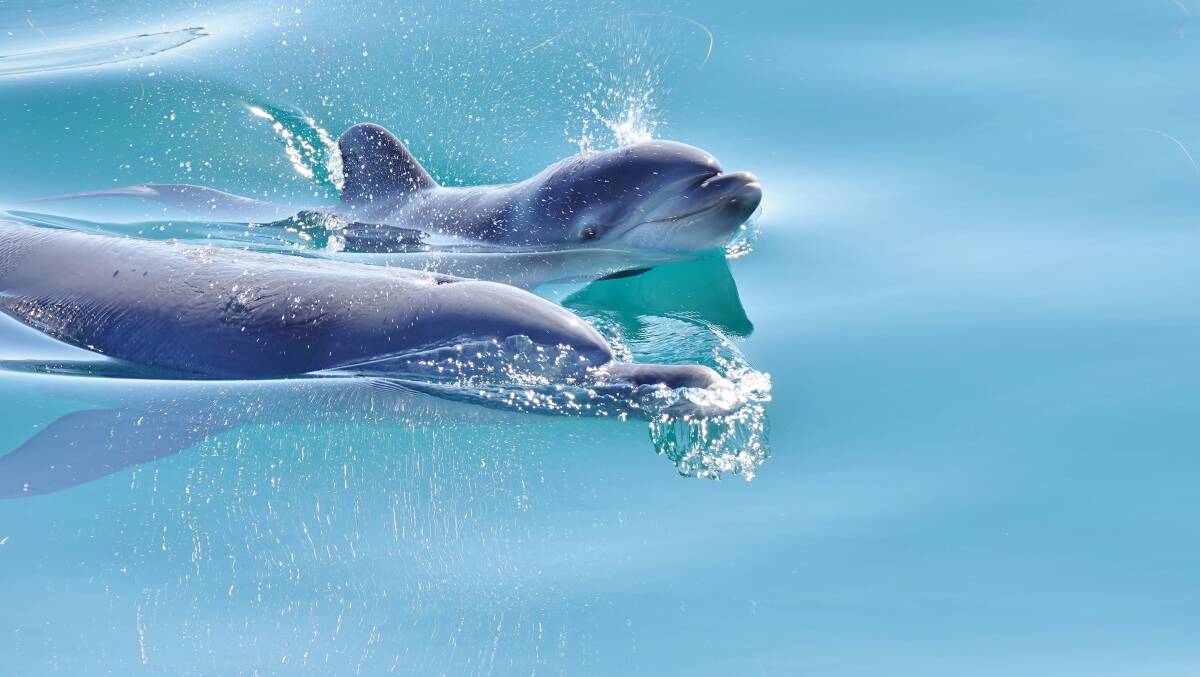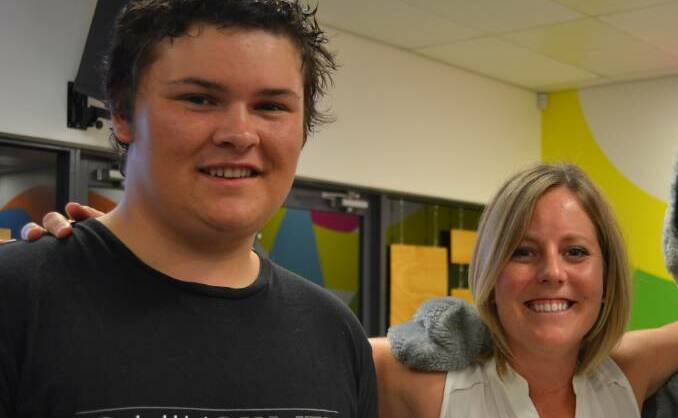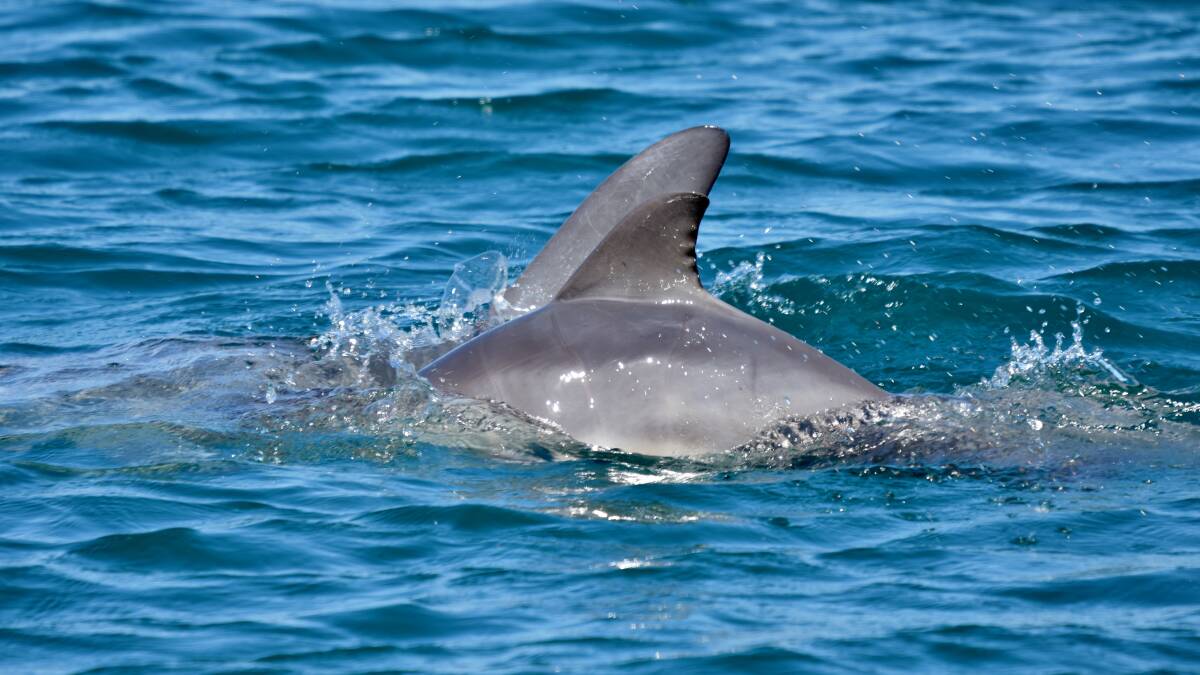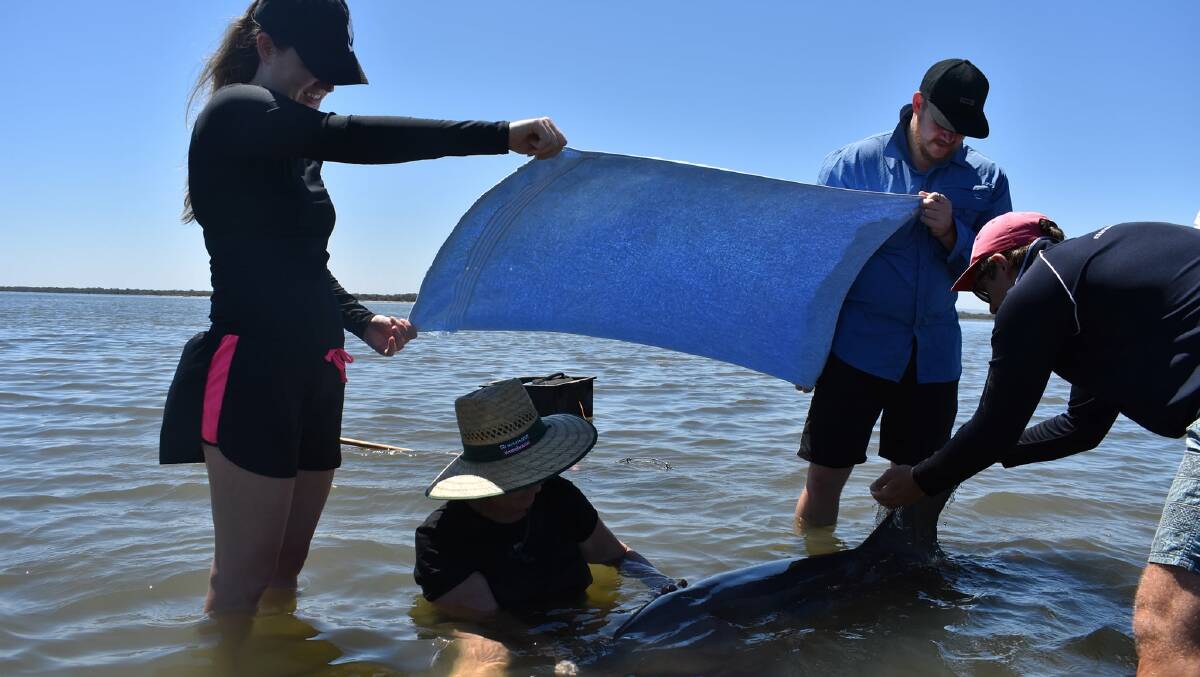
Last week marked the beginning of the dolphin breeding season in the Mandurah estuary, with the first calf of the year seen on January 12.
Create a free account to read this article
$0/
(min cost $0)
or signup to continue reading
Mandurah's resident pod of dolphins, currently at about 90 individuals, gives birth between March and May each year. The number of births ranges from five to 16 calves, with an average survival rate of 75 per cent.

Dr Krista Nicholson, a researcher from Murdoch University working with the Estuary Guardians Mandurah, has been studying the local pod of dolphins since 2016. She spoke to the Mail about the newborn calf and shared some advice on keeping the resident friendly dolphins safe.
"The first year is the most vulnerable for dolphin calves. We have observed a slightly negative population growth rate over time. One of the ways we recommend to increase the population growth rate is to ensure calves survive their first year," Dr Nicholson said. Ensuring the community understands how to keep our dolphins safe was an important part of preventing further population loss, she said.
The Indopacific Bottlenose Dolphins which call the Mandurah estuary home are friendly and curious in nature, however Dr Nicholson warns that boats and other water crafts should observe from afar and take care to always give the dolphins a way out if there is crowding.

"They can be disturbed by the physical presence and noise of boats which can be quite stressful," Dr Nicholson said, adding that the Mandurah channel and Dawesville Cut were where she sees the most boat traffic and crowding occurring.
"As newborns are learning their way around the estuary, they are more vulnerable to boat strikes."
She praised the community for not feeding the dolphins and calves, another harmful activity, as she noted not observing any 'begging' behaviour which would indicate they had been fed by humans.
The Estuary Guardians Mandurah recently shared a Facebook post, informing community members of the best ways to keep our dolphins safe.
"We ask everyone to please watch out ahead of your boat for dolphins if travelling and then give any dolphin pods a wide berth if possible," the Facebook post said.
Dr Nicholson explained that during the summer and autumn months when dolphins calves are born is also the time when they are most at risk of becoming stranded and sun burnt.
"While you're observing the dolphins, observe if they are stranded. If you do see a stranded dolphin, please get in contact with the Wildcare Helpine," Dr Nicholson said.

As newborn calves become accustomed to their new environment, Dr Nicholson has a reminder for the community.
"The main thing is to remind people to give them space, keep your distance and give them a way out to move away if they want to."
Dr Nicholson noted that the best place to observe Mandurah's dolphins and newborn calves is offshore.
"Mandurah is a fantastic place for this, especially near the channel," she said.
If you have found an injured or stranded dolphin, please call the Wildcare Helpline on (08) 9474 9055.

